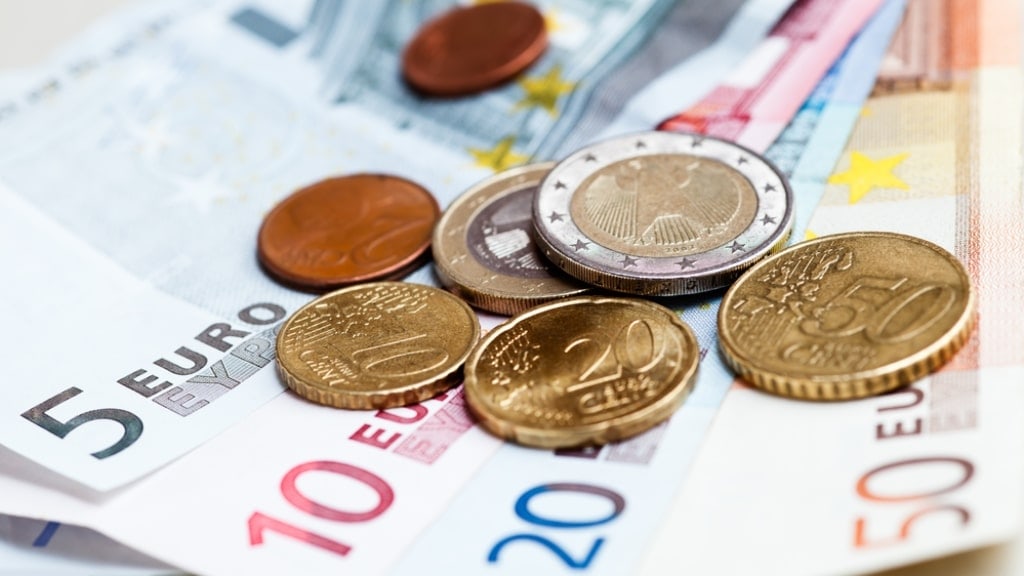Preparing for your dream vacation in Greece, it’s imperative to know all about money in Greece. Not only the currency but also how to use it, what to expect, and how to handle assorted money-related situations.
So, this guide is dedicated to everything concerning money in Greece that you need to know to be always in control of things!

A Guide to Money, ATMs, and Credit Cards in Greece
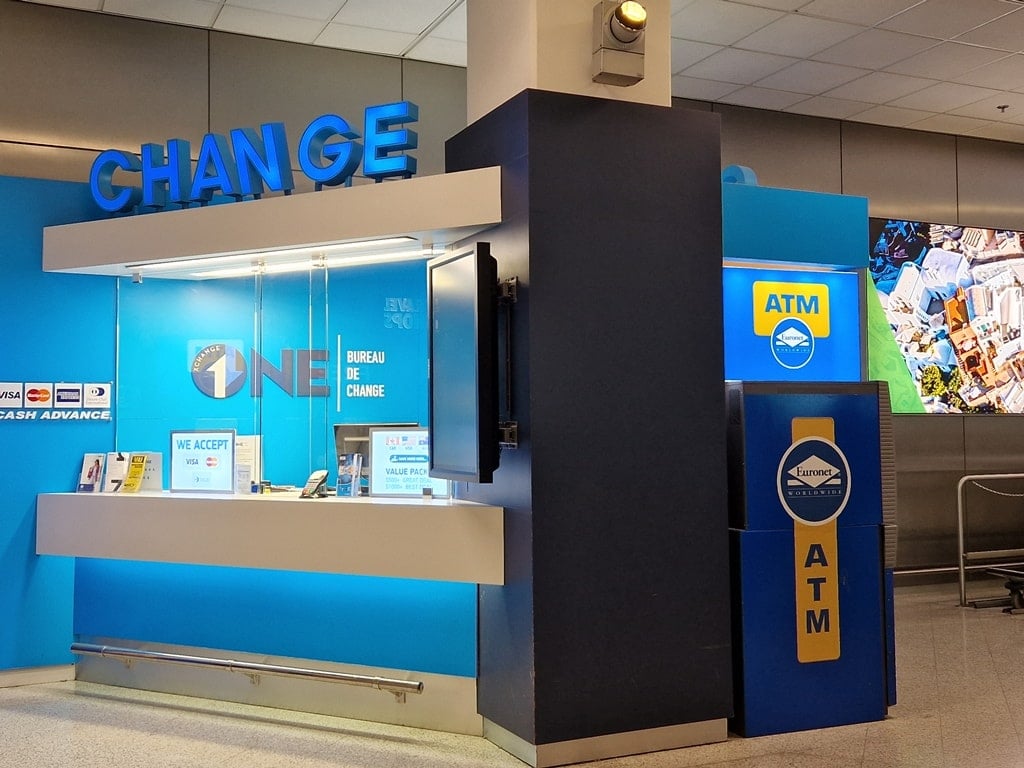
What is the currency in Greece?
The official currency in Greece is the Euro, as in 19 of the 27 EU countries.
The euro comes in coins and notes.
There are coins of 1 euro and 2 euro and 1, 2, 5, 10, 20, and 50 cent ones for coins.
There are notes of 5, 10, 20, 50, 100, 200, and 500 euros for notes.
The most frequent notes in circulation are the 5-, 10-, 20-, and 50-euro notes. 100s are relatively rare, and 200s and 500s are almost non-existent, which means they may be hard to break (i.e. people may not have enough cash to break a 500 euro note). Therefore it’s wise when you are exchanging your currency for euro, to specifically ask to be given no bigger notes than the 50s.
Finally, keep in mind that you can’t pay in other currencies in Greece, so make sure you only have euros on your person.
Cash in Greece is king
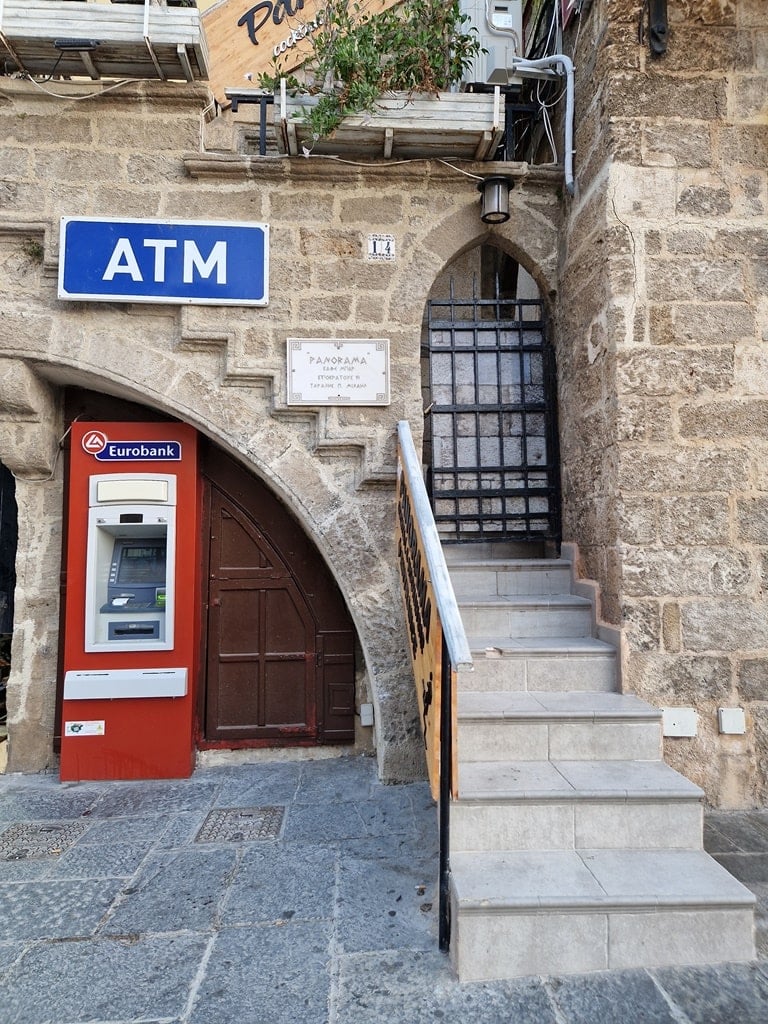
Though you will likely be able to use all your cards in all the cities and touristy hubs, Greece as a society favors cash transactions.
Greek businesses are required by law to have POS machines, and nobody will deny you a credit or debit card transaction. However, it is likely that using cash will prove cheaper: international credit/debit cards may incur extra charges for every transaction. This might not seem like much but consider how extra charges add up if you’re charged 50 cents or a euro for each one, and you make something like 5 or 6 transactions a day!
In some remote regions, it might be difficult to get service without cash. Not every tiny village will have POS machines!
Lastly, you may get better prices and discounts if you pay cash.
Research the exchange rate
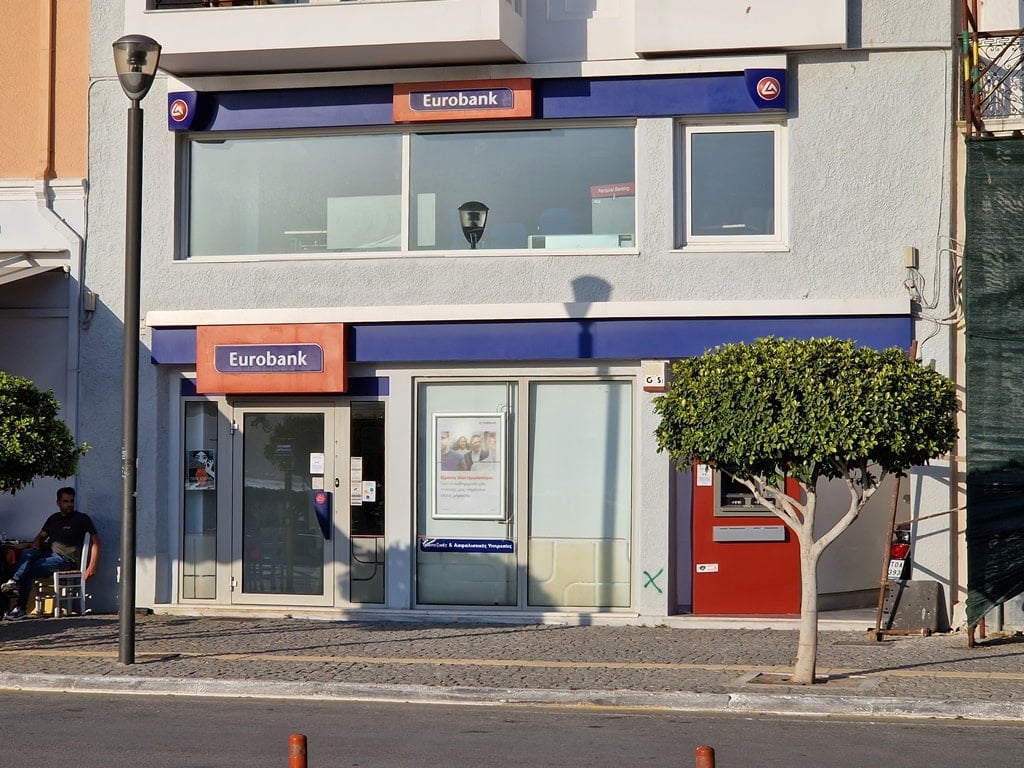
The exchange rate constantly fluctuates, so it’s wise to monitor it to get the best possible deal. Consider buying some euros in advance if you hit a great rate.
Typically, banks have the best exchange rates, but that is not a strict rule. In downtown Athens, there are dedicated exchange bureaus that may offer better prices if you change your cash in bulk, so do your research and get at least a couple of offers before committing! They are conveniently clustered, especially around Syntagma Square, so that you can shop around relatively efficiently.
Do your homework on your cards and bank account
Make sure you know what extra fees are incurred on your cards beforehand.
Call your bank and ask for the fees, or request the fees list in writing. International cards may incur fees with each transaction, but that isn’t all. Withdrawing cash from ATMs may also incur fees, sometimes upscale 4 euros.
If that is the case, you should be strategic about how much money you withdraw each time and how frequently. Withdraw the biggest amount you’re allowed and keep the cash on your person (safely tucked away in inner pockets or even more secure ways) to save on such fees accumulating.
Otherwise, consider getting an international bank account or a “borderless” bank account. Several institutions, including virtual banks, offer these types of accounts. In these cases, you won’t have to worry about additional fees incurred with every transaction.
Ensure that the banks that have issued your cards are aware that you are going on vacation and transactions in Greece will be showing up. Otherwise, you may risk having your card blocked for suspicious activity, which means you’ll need to make international calls to sort it out.
Alternatively, you can investigate the option of issuing a special travel credit or debit card that will be dedicated to your travel expenses and get you better fees and other privileges.
You might also like: Tipping in Greece.
Main Greek banks
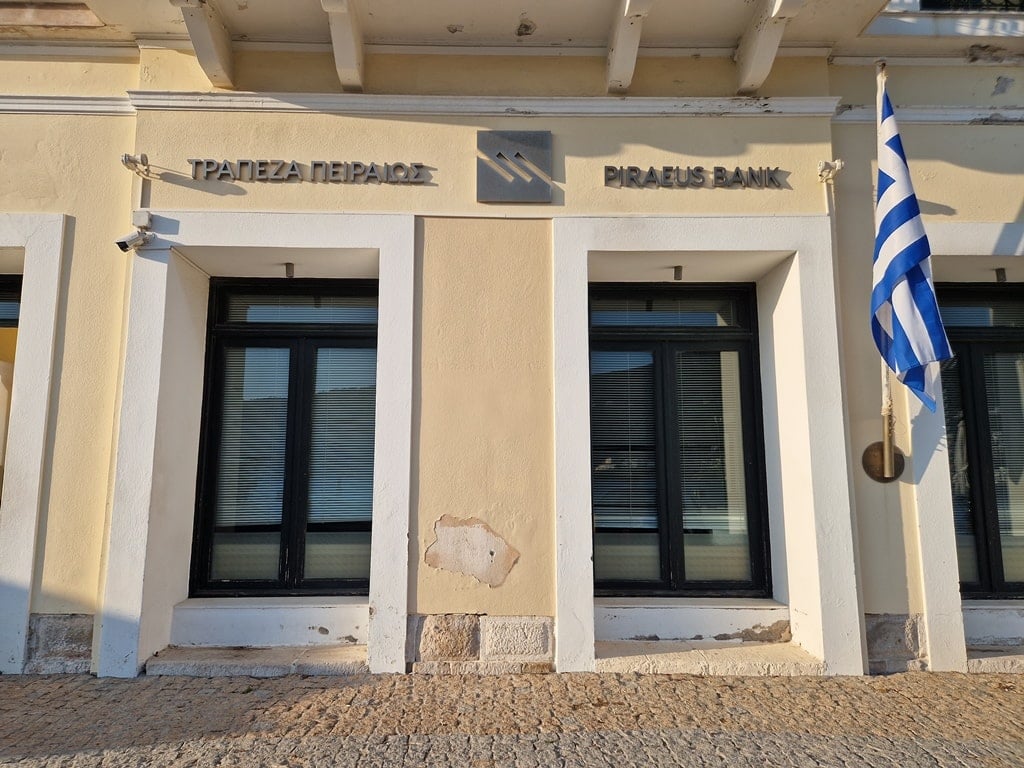
The most prominent Greek banks are Ethniki Bank (National Bank), Alpha Bank, Eurobank, and Piraeus Bank. There are a lot of others but they aren’t as prevalent.
Eurobank seems to have the highest fees for its services of these four banks, so try to locate any of the other three before you resort to Eurobank!
ATMs and contactless payments
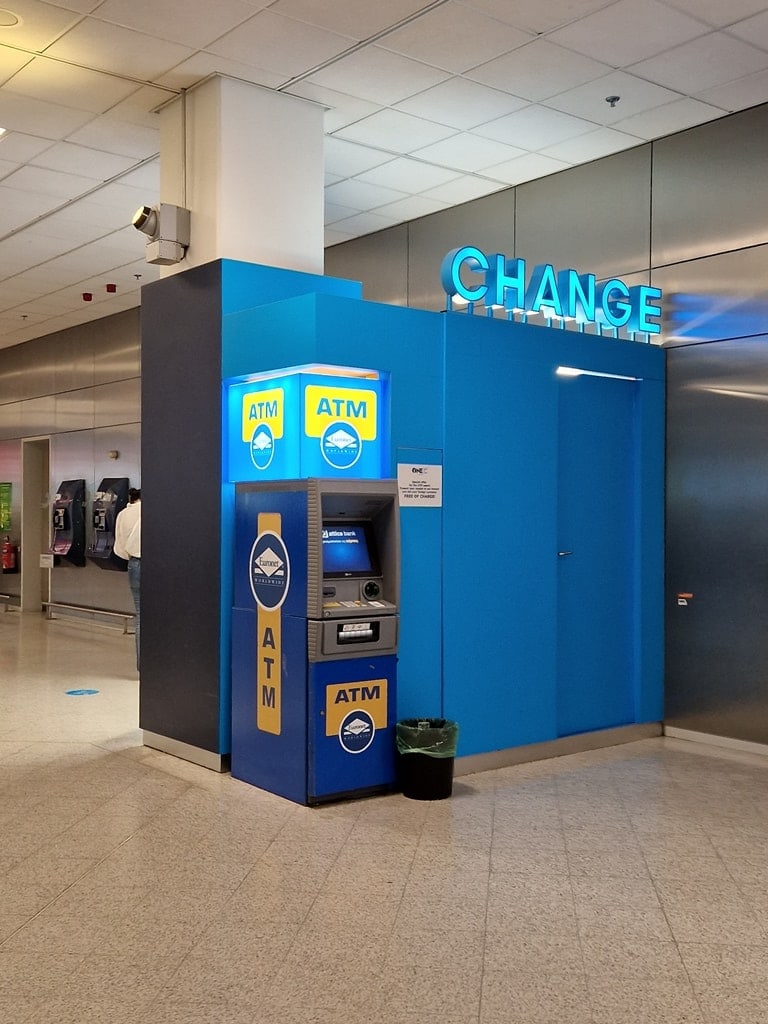
There are ATMs everywhere in Greece, often in remote areas as well. You can use all your cards at any ATM. ATM displays are in Greek by default, but you are presented with the option of switching the display to English from the get-go.
All ATMs in Greece are trustworthy and safe, but you should prefer those right outside or inside a bank. That way if you encounter any issue (e.g. the machine withholds your card or one of your notes is flagged as counterfeit or any such situation), you can immediately go in and ask for help to resolve the issue.
If you are presented with the option of making the transaction in your home currency or euros, always choose euros as the fees are going to be lower by default.
Either way, make sure you carry some cash as in small villages or remote areas there may only be one ATM. If that is the case, it’s not unusual for that ATM to be out of cash.
Contactless payments are also possible in Greece for amounts of up to 50 euros. Beyond that, you can still make the payment, but your pin will be required.
Tip: Euronet ATMs are best to be avoided as they charge the highest fees.
Tips for safety
Greece is generally a safe place. You are unlikely to be the victim of theft. That said, pickpockets exist, and you should consider them a threat anyway.
Therefore, make sure that you don’t keep all your money in one place. Don’t flash your cash or credit cards. Be discreet when you make payments. When you withdraw cash, make sure it is all safely in your wallet and your wallet safely in your bag or pocket in an inaccessible location before you leave.
As for cash, always carry what you will need for the day but not more than that. Ensure that your hotel has a reliable safe with a personal code you choose and keep your valuables there. If you don’t have such a safe, make sure your credit cards are not easily accessible and can’t be stolen wholesale: keep some in your inner pockets where it’s very hard for anyone but you to reach.
Always keep track of where your bag is, and ensure it zips up securely. When using public transportation, keep your luggage or bag in front of you or with your arm around it so it can’t be accessed without you being aware of that.
In general, pickpockets are looking for easy opportunities. They are unlikely to target you if your stuff looks properly secured and surveilled. They go for open bags, things hanging out of pockets, and generally what is easy and quick to snatch.
In conclusion
Greece is a safe place, and money is easy to handle. Make sure everything is in euros and keep cash on you as Greeks prefer it.
Do your homework on exchange rates and bank fees, keep a couple of credit and debit cards on you along with the cash, and you’re good to go!

